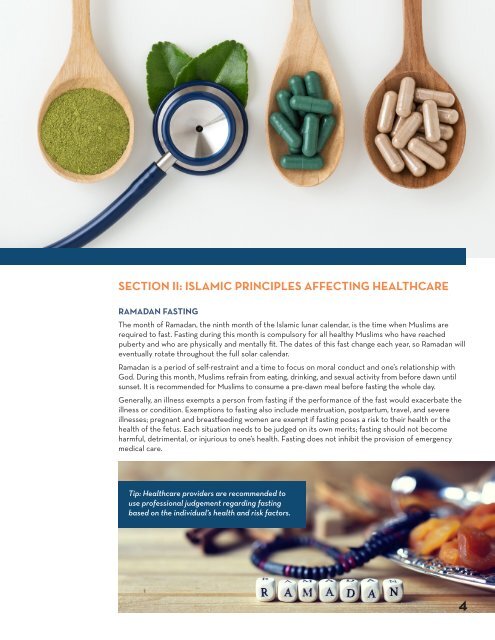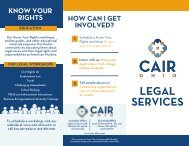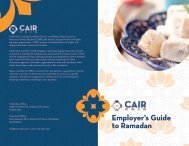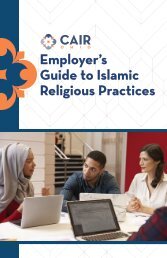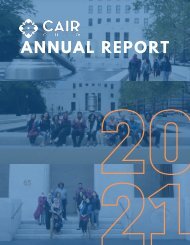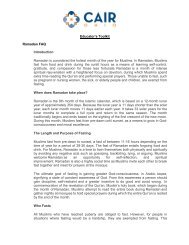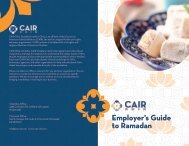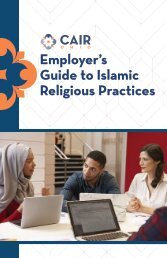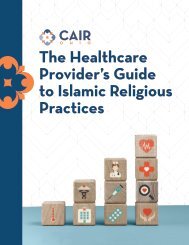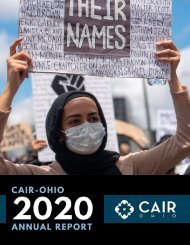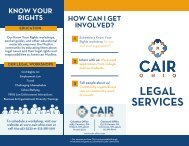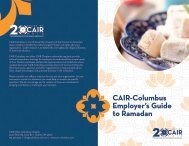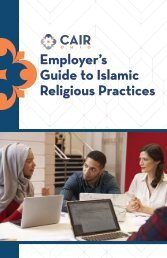CAIR-Ohio-Healthcare-Providers-Guide (2022)
Create successful ePaper yourself
Turn your PDF publications into a flip-book with our unique Google optimized e-Paper software.
SECTION II: ISLAMIC PRINCIPLES AFFECTING HEALTHCARE<br />
RAMADAN FASTING<br />
The month of Ramadan, the ninth month of the Islamic lunar calendar, is the time when Muslims are<br />
required to fast. Fasting during this month is compulsory for all healthy Muslims who have reached<br />
puberty and who are physically and mentally fit. The dates of this fast change each year, so Ramadan will<br />
eventually rotate throughout the full solar calendar.<br />
Ramadan is a period of self-restraint and a time to focus on moral conduct and one’s relationship with<br />
God. During this month, Muslims refrain from eating, drinking, and sexual activity from before dawn until<br />
sunset. It is recommended for Muslims to consume a pre-dawn meal before fasting the whole day.<br />
Generally, an illness exempts a person from fasting if the performance of the fast would exacerbate the<br />
illness or condition. Exemptions to fasting also include menstruation, postpartum, travel, and severe<br />
illnesses; pregnant and breastfeeding women are exempt if fasting poses a risk to their health or the<br />
health of the fetus. Each situation needs to be judged on its own merits; fasting should not become<br />
harmful, detrimental, or injurious to one’s health. Fasting does not inhibit the provision of emergency<br />
medical care.<br />
Tip: <strong>Healthcare</strong> providers are recommended to<br />
use professional judgement regarding fasting<br />
based on the individual’s health and risk factors.<br />
4


